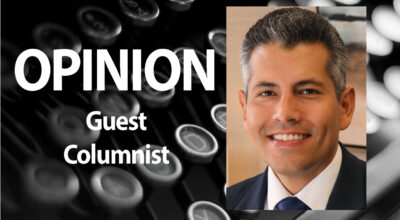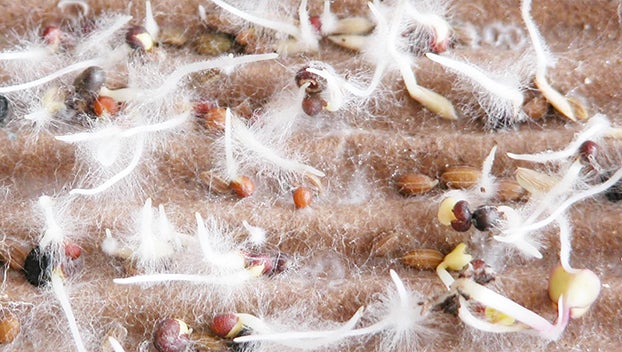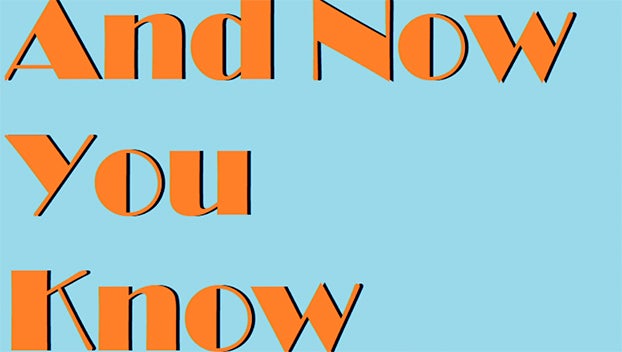A Ranger Named ‘Joaquin’
Published 11:33 am Wednesday, October 12, 2016
Commentary by Dr. Don Newbury
Had his life been a song, it would have been Big John. If a folk tale, Paul Bunyan. If a military hero, pick your favorite, and he’d have a lot of Joaquin Jackson in him.
And this veteran lawman charged with peace-keeping over a vast West Texas expanse bigger than some states was perhaps as colorful as Judge Roy Bean. (Bean, a Justice of the Peace with a courtroom in his saloon, is remembered for law “west of the Pecos.”)
Jackson resigned at the age of 57. Political correctness was taking a foothold, and he didn’t like what he saw coming. A Texas Ranger from 1966-1993, he decided to open a private investigation office in Alpine, where he lived until his death this summer at age 80.
By all accounts–many of which were shared following his July memorial service in Alpine–he was as square a shooter as ever lived, although he never fired a fatal shot. He even befriended prisoners. Once, hearing Johnny Rodriguez singing from his cell, Joaquin arranged for him to meet music promoter Happy Shahan. Soon, Rodriguez was a sensation, named country music’s vocalist of the year in 1973.
The “lawman’s lawman,” Jackson was a beloved figure, vividly remembered for public service though 23 years removed from it. Some 500 people, many of them law figures, gathered in his memory.
A couple of notables–Governor Rick Perry and renowned Houston attorney Dick DeGuerin–spoke, as did the preacher at the local cowboy church.
Edward DeWees III, Joaquin’s third cousin, idolized his kin. He named his dog “Ranger,” and when he opened his San Antonio “dream store” a few years ago, the name honored his esteemed cousin: “Ranger Firearms.” To promote the store, Jackson drove to San Antonio to tape radio commercials.
It was DeWees who first understood why there were two small holes dug next to the grave of Shirley Jackson, Joaquin’s widow, who died three years ago.
One was to hold his cremains; the other, the cremains of Will, his spirited Schnauzer who died earlier this year after a lifetime of devotion. One vessel–Joaquin’s cigar humidor–held two bunches of cigars, two bottled libations, his ever-present alarm clock, a wooden cross, a bullet collection, a package of “Natural American Spirit” cigarettes and a figurine of a little white dog. The other held Will’s collar and a fancy blue bandanna.
Jackson so embodied the spirit of Texas–where words meant bonds and handshakes sealed them–he played in numerous movies with such well-known actors as Tommy Lee Jones (Good Old Boys), Clint Eastwood (A Perfect World) and Robert Duvall (Wild Horses.)
Standing a full 6-5 and further defined by a mustache above his upper lip that became well salted to match hair above that had started out a deep black, Joaquin was a striking figure throughout his life. One fellow who knew him well said, “Joaquin would charge hell with a handbucket.” He embodied a quote which has no attribution: “The knot is what binds us and forms the noose we cannot slip.”
He served during an era when much had to be taken into one’s own hands. He did so admirably.
Joaquin will be remembered for service rendered across the years, not just for a few words on a headstone. A new program to train students in the fight against terrorism is on the drawing boards at Sul Ross State University. It will bear the name “Joaquin Jackson.”
His is a name worthy of Googling. Dr. Walter Prescott Webb, one of Texas’ foremost historians, elevated Joaquin to legendary status in his writings about Texas. Webb respected him immensely.
Someone mentioned the “one riot, one Ranger” line, saying, “For a really big riot, we’d be best served if the Ranger was Joaquin.” Jackson’s photo adorns the cover of a 1994 Texas Monthly magazine. And the article therein provides vivid details
Dr. Newbury is a speaker in the Dallas/Fort Worth Metroplex. Comments/inquiries to: newbury@speakerdoc.com. Phone: 817-447-3872. Web site: www.speakerdoc.com.





